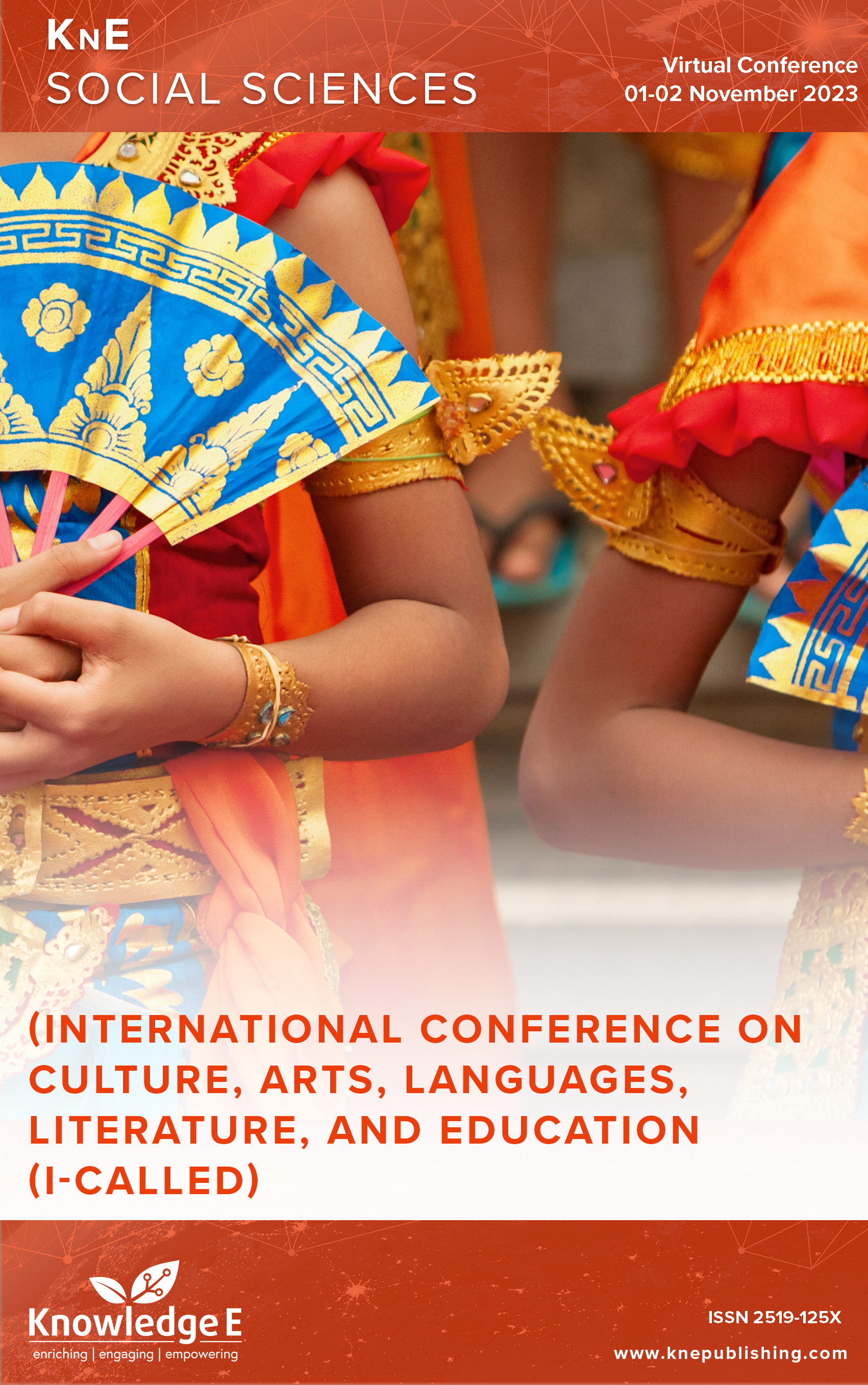Biocultural Conservation-based Narrative Text: An Effort to Enhance Conservation Literacy of the Local Community in the Sanctuary Area
DOI:
https://doi.org/10.18502/kss.v9i9.15652Abstract
This study is part of the Faculty of Languages and Arts’ second-year research project in partnership with International Animal Rescue (IAR). The major goal was to raise conservation awareness among the local people dwelling in the sanctuary region of Pematang Gadung Village, Ketapang Regency, West Borneo, to tackle environmental challenges such as illegal logging, poaching, and illegal mining. The research and development process were divided into three stages based on the Successive Approximation Model (SAM): preparation, iterative design, and iterative development. This work focuses primarily on the iterative design phase, expanding on the findings of the research completed in the first year when the local people perceived forest as commodities due to their lack of conservation literacy. Their biocultural conservation, on the other hand, was profoundly based on their indigenous, Muslim Malay ethnic beliefs and traditions. This study aims to construct a biocultural conservation-based narrative text as a first step toward generating conservation material that resonates with the community’s local wisdom using a biocultural approach.
Keywords: conservation literacy, biocultural conservation approach, SAM, REB, local community of Pematang Gadung Village
References
Suciadi H. International Animal Rescue. 2021 Jul 05 [cited 2023 Dec 26]. Available from: https://www.internationalanimalrescue.or.id/everything-you-need-toknow- about-rohadi/
Scholz RW. Environmental Literacy in Science and Society. Cambridge: Cambridge University Press; 2012.
YIARI. Analisis Putar Film IOD. Jakarta: YIARI; 2020.
Fernández-Llamazares A, Cabeza M. Rediscovering the Potential of Indigenous Storytelling for Conservation Practice. Issues in Conservation Letters. 2018;11(3):1–12. DOI: https://doi.org/10.1111/conl.12398
Buzan T, Buzan B. The Mind Map Book: How to Use Radiant Thinking to Maximize Your Brain’s Untapped Potential Paperback. Londong: Penguin Books; 1996.
Elbow P. Writing without Teachers. New York, NY: Oxford University Press; 1973. pp. 12–75.

